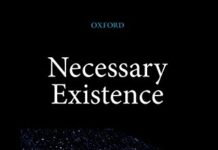
Ebook Info
- Published: 2006
- Number of pages: 352 pages
- Format: PDF
- File Size: 1.81 MB
- Authors: Alexander R. Pruss
Description
The Principle of Sufficient Reason (PSR) says that all contingent facts must have explanation. In this 2006 volume, which was the first on the topic in the English language in nearly half a century, Alexander Pruss examines the substantive philosophical issues raised by the Principle Reason. Discussing various forms of the PSR and selected historical episodes, from Parmenides, Leibnez, and Hume, Pruss defends the claim that every true contingent proposition must have an explanation against major objections, including Hume’s imaginability argument and Peter van Inwagen’s argument that the PSR entails modal fatalism. Pruss also provides a number of positive arguments for the PSR, based on considerations as different as the metaphysics of existence, counterfactuals and modality, negative explanations, and the everyday applicability of the PSR. Moreover, Pruss shows how the PSR would advance the discussion in a number of disparate fields, including meta-ethics and the philosophy of mathematics.
User’s Reviews
Reviews from Amazon users which were colected at the time this book was published on the website:
⭐The Principle of Sufficient Reason (PSR) is a controversial (and possibly illegitimate) sibling of two other foundational principles in metaphysics and especially epistemology. The Principle of the Indiscernability of Identicals (a = a) the PII, and the Principle of the Excluded Middle (either q or ~q) the PEM are solid entailments of first order logic. But the necessity of the PSR does not so easily fall out of simple logic. While the PSR is today mostly taken for granted where phenomena of ordinary life are concerned (and in particular the doing of science taken broadly) its necessity under all circumstances is controversial.In this book, Dr. Pruss argues that the PSR is indeed necessary as concerns “contingent phenomena”, things that have happened but might not have happened or might have come out otherwise than they did. In other words, it is necessary that there be an explanation, either causal, or otherwise by “removing the mystery”, for all contingent phenomena. The purpose of this book is to establish that claim. As with any serious philosophical investigation Pruss carefully investigates the history of the PSR and all the various kinds of claims made for and against its being necessary. This is a long book and will not be of broad interest because the topic is so specific. But those interested in the foundations of science and for that matter all rational thought should understand the nature and controversy surrounding the PSR.Pruss spends a great deal of time on the relation between the PSR and causation. But his interest is in explanation more broadly, and causation is only one sort of explanation. If nothing else, Dr. Pruss does a thorough job of covering all the bases as there have been arguments both for and against the “necessary truth” of the PSR since the classical Greeks. He explicates idealistic and empirical arguments for and against the PSR but some readers will object to his acceptance of some idealistic implications. All the greats are brought to the table here from Aristotle, Leibniz, Hume, and Kant to Lewis, Plantinga, Kripke, and Rescher. The relation between physics and the Causal Principle (a subset of the PSR) including its implication in quantum mechanics, is addressed extensively, but so are rationalistic arguments from the likes of St. Thomas. Pruss comes at his subject from as many angles as possible.This being said I do have a few issues with this book.1. There is a technical problem with the Kindle version at least. Every chapter references sections in other chapters. This is surely one of Kindle’s big advantages because you can easily click on those links and refresh your memory of the referenced material or skip ahead to see how some of the argument comes out in a later section. But in about half the chapters of the book, these references are missing… Sentences like “see further discussion in section .” (notice the space between the last word and the period) appear where the references are simply missing; not in every chapter, but in a lot of them.2. There are many complex logical arguments rendered in English (and sometimes both English and symbolic notation) that are very convoluted and difficult to follow. I found one that seemed plainly wrong thanks to what appears to be an editing error. I have encountered such arguments in the work of other philosophers where the complexities are much better expressed and so easier to follow. I think some more work could have been done here.3. Some of the chapters strike me as poorly edited even apart from the complex logical arguments. Much simplification of his language could be achieved but was not. This does not seem to be the case with every chapter so I have to wonder if different editors were employed here or the editor just became tired and didn’t do a great job everywhere.Finally a quibble about something of a hole in this book. In 1813 (revised and published again in 1847) Arthur Schopenhauer wrote “The Fourfold Root of the Principle of Sufficient Reason”. Although Leibniz (who Pruss references often) was the first to formalize the PSR, the work of Schopenhauer remains a significant, even dominant, contribution to the discussion and yet Pruss does not mention him even once. Schopenhauer was a Kantian idealist and concludes that the necessity of the PSR precludes theism, while Pruss, a realist, concludes that in fact the necessity of the PSR makes theism more likely. I get that the idealist-realist divide drives both authors to opposite conclusions about theism. I’m on Pruss’s side! Still, this is not a book about theism but the PSR and not to have even mentioned Schopenhauer, not to have devoted a section at least to some description of that work and its relation to his own in a book like this, seems like a missing piece.
⭐Alexander Pruss in my eyes is probably the most underrated philosopher in the world today, this book shows us why.I first learned about Pruss through his essay in “The Blackwell Companion To Natural Theology” and with all due respect to William Lane Craig, I find Alexander’s cosmological argument to be a tad bit more compelling than the Kalam Cosmological argument (though the KCA is still an excellent argument for the existence of God).The Principle of Sufficient Reason (PSR) can be traced all the way back to the Greek philosopher Parmenides’ 2nd argument against becoming. Pruss does an excellent job giving the history of the PSR that has been spoken about from prominent philosophers such as Parmenides, Thomas Aquinas, G.W Leibniz, David Hume and Immanuel Kant.Parmenides states “What need would have driven it later rather than earlier, beginning from the nothing, to grow?”Parmenides uses the PSR to argue for his ‘ex nihilo nihil principle’ here. Pruss shows us how the ex nihilo nihil principle is not in the first instance to be perceived as a principle about explanation or causation. In fact, in one of its cosmological forms, it says that a universe with an empty past will not have a nonempty present or future.Pruss then goes over the chains of causes such as the The Hume-Edwards Principle and shows where it fails.The book is broken up into 3 major parts in which Pruss goes greatly into detail of describing each important factor of the PSR and its significance. Pruss brings up topics such as Modal Fatalism, Free-Will, Quantum Mechanics, Thomist Arguments, Modal Arguments, Explanation of Negative states of affairs, Inductive skepticism, the Nature of Possibility and the importance of Inference to the best explanation (or the only explanation).Here is the layout:Part 1 – The Principle of Sufficient Reason and the causal principlePart 2 – Objections to the PSRPart 3 – Justifications of the PSRIt is books like this that make me want to go back to college to finish up a degree in philosophy, and I believe the time is growing near :)An Excellent book that I would recommend to anyone who is interested in the Metaphysics of existence, Meta-Ethics, or just interested in philosophy!!!
⭐I just finished Dr. Alexander Pruss’ The Principle of Sufficient Reason: A Reassessment and Dr. Scott Sullivan’s Saint Thomas Aquinas and the Principle of Sufficient Reason.Both books complimented each other well. They covered significant areas the other book did not. Pruss’ book was very good. It effectively answered Van Inwagen’s objection via the Big Contingent Conjunctive Fact as well as extensive analysis of free will and a fair analysis of quantum indeterminacy. He also makes some clever arguments from S5 modal logic to demonstrate that the PSR is either necessary or impossible, much like Plantinga’s Ontological Argument does for God does.
⭐I’m not worthy of this work. I didn’t have the chance to go to university, and am merely a curious person who can read.My opinion of this book is ignorant at best. I love it.(Spoiler) Nothing comes from nothing. God made the universe and everything in it has a purpose and it couldn’t exist at all if it weren’t exactly as it is. He exists outside time. This dense jargon proves it. They’re pretty sure they have it this time.If you don’t or won’t accept that premise, and prefer to consider the universe a series of random accidents which culminated in this unlikely but hardly unique world of purposeless self aware beings struggling to establish and enhance their personal comforts, this book won’t convince you otherwise. Which is actually semi tragic, as that’s what it intends. I agree with Pascal, no one gets faith by reasoning. That’s not what reasoning is for. Discernment isn’t mental.This book is better than me, and the writer is smarter and more educated than I’ll ever be. I’m glad he wrote the thing, it’s a better world with this book in it. It isn’t preposterous.
⭐This is a good book. Very technical so I would only recommend this to those who are highly educated in philosophy and who have a decent grasp of formal logic.In the first section, Pruss offers a detailed history and definition of the PSR. In the second section, he thoroughly explores various attacks on the PSR and meticulously deconstructs, critiques and refutes them. In the third, he offers justifications/assesses various justifications of the PSR.Sections one and two were brilliant, but two was little tedious (perhaps reasonably so as the critiques of the PSR were technical and required a requisitely technical response). But I do think he put a bit too much stock in the objections than was proportional to their force however and he was too modest in his rejection of them.Section 3 was a decent defence of the PSR however it was very very modest (and characteristically technical). He explores various arguments for the sufficiency of the PSR (and assesses the plausibility of them also). He also provides defences to the the criticism of those justifications and assesses their ultimate plausibility. The conclusion, it should be noted, was unduly modest in my opinion (but perhaps that’s because I simply lack a deep appreciation for the force of the objections).In all a good book that does a very thorough job of defending and justifying the PSR. Truly an essential work on the subject and deserving of highly praise for its depth and for the genius of the author. But if you are looking for a dramatic and compelling defence of the PSR I would look elsewhere.
Keywords
Free Download The Principle of Sufficient Reason: A Reassessment (Cambridge Studies in Philosophy) in PDF format
The Principle of Sufficient Reason: A Reassessment (Cambridge Studies in Philosophy) PDF Free Download
Download The Principle of Sufficient Reason: A Reassessment (Cambridge Studies in Philosophy) 2006 PDF Free
The Principle of Sufficient Reason: A Reassessment (Cambridge Studies in Philosophy) 2006 PDF Free Download
Download The Principle of Sufficient Reason: A Reassessment (Cambridge Studies in Philosophy) PDF
Free Download Ebook The Principle of Sufficient Reason: A Reassessment (Cambridge Studies in Philosophy)



